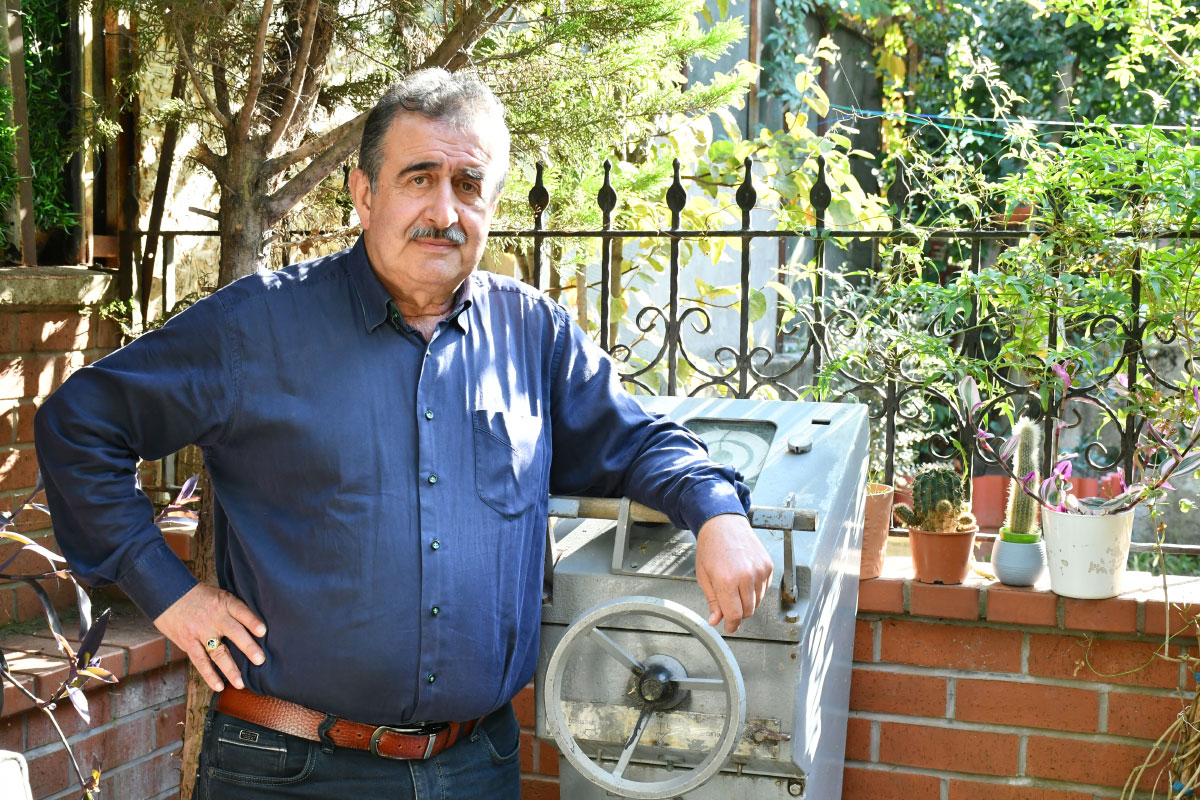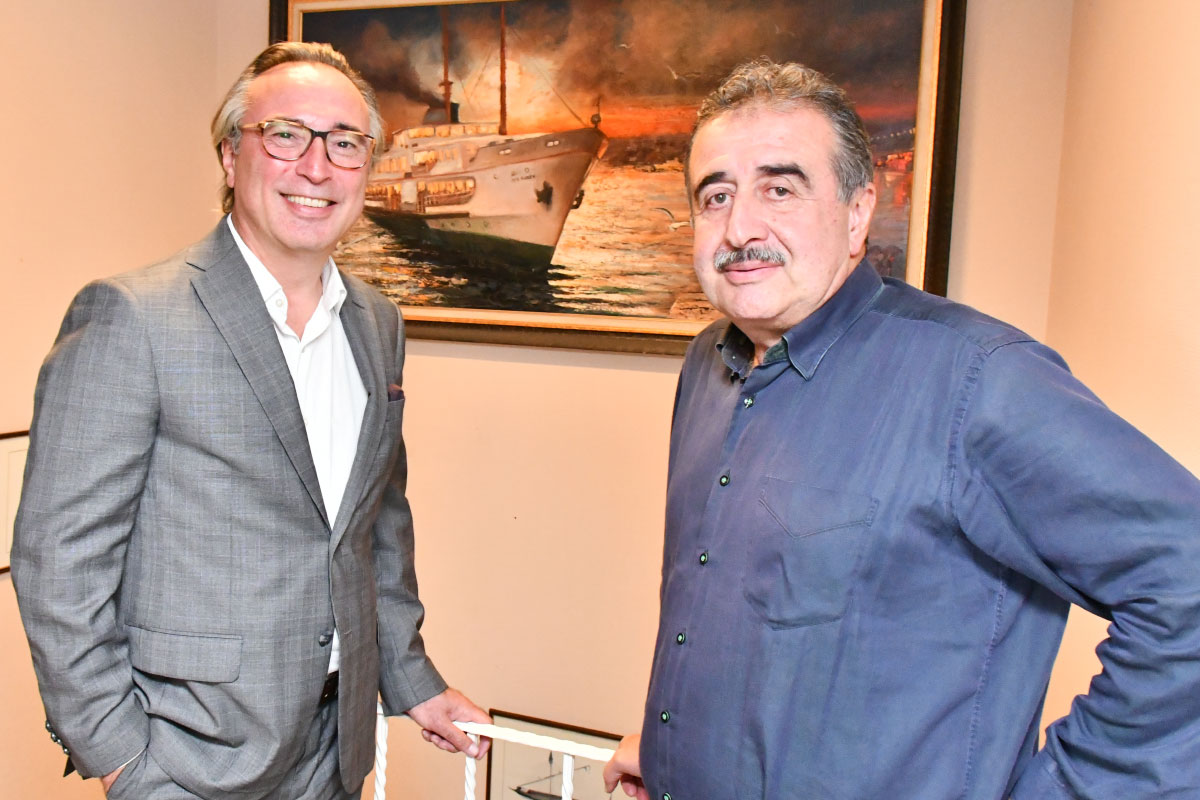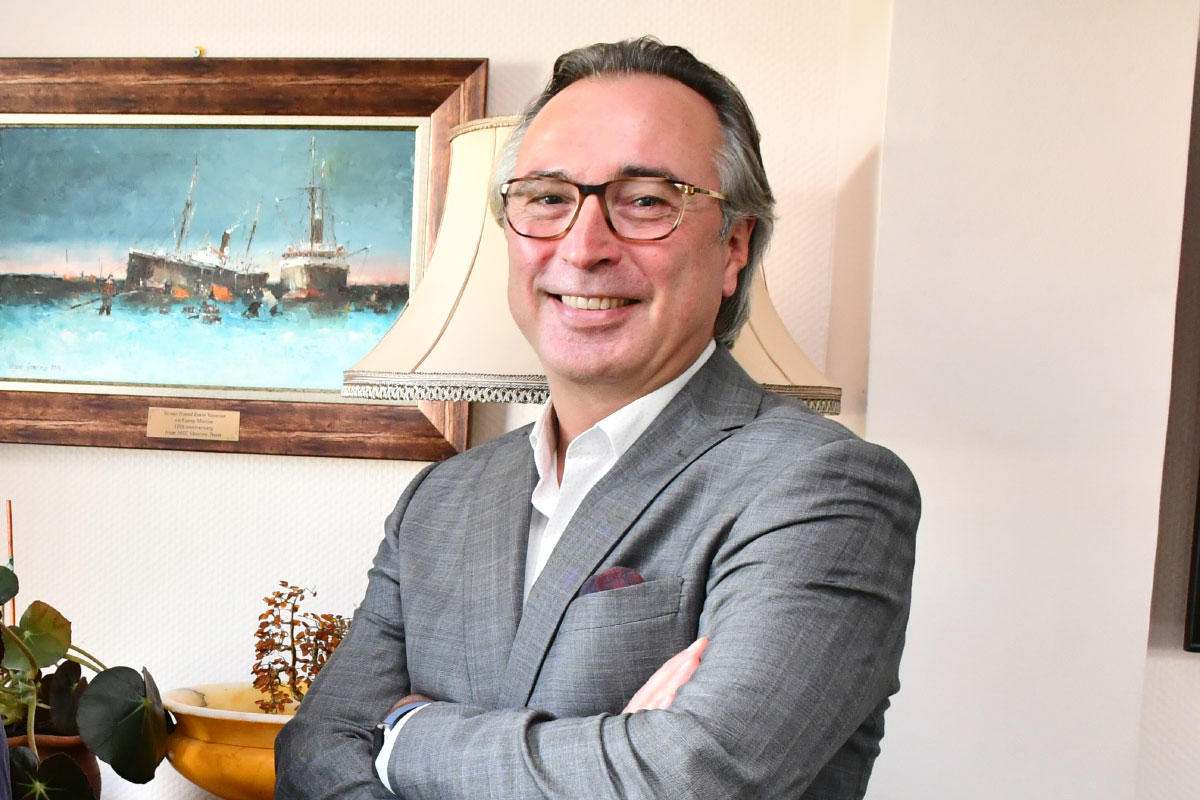Capt. Ömer Asmalı, one of the most experienced names in Coastal Safety, a graduate of the Higher Maritime School (YDO) Deck 1981, retired last August when he was the last captain after working for many years as a ship salvage specialist and chief inspector at the Coastal Safety Maritime Services Department. Ömer Asmalı, who wrote the book “Ship Salvage Operations and Crisis Management” to pass on his experiences in nearly 300 rescue operations he participated in, to future generations, and lectures as a lecturer at Beykoz Barbaros Anatolian Maritime Vocational High School, ITU Maritime Faculty, and Istanbul University Institute of Marine Sciences Management, decided to continue his retirement life as an instructor, to transfer his knowledge and experience to the sector and agreed for continuing education center with Kuzey Insurance & Reinsurance Brokers Inc.
Capt. Ömer Asmalı and Kuzey Insurance’s founder Emin Yaşacan expressed Denizcilik Dergisi (Turkish Maritime Magazine) the first information about the continuing education center they will organize as a social responsibility project.

The bureaucracy wants to control the free movement of the employee with the instinct of self-preservation.
Capt. Ömer Asmalı said as follows:
“The state bureaucracy has rules it sets. These are the rules that should be. However, when the implementation of these rules turns into prohibitive thinking, it restricts the productivity and independence of people. I think that it is necessary not to restrict the behavior of people who are competent in subjects with defined boundaries. I consider it would be beneficial to convey the attitudes, behaviors, and limits of personal opinions that will be in favor of the country and the institution to third parties.
I have not seen many places where professional education is given in Türkiye, apart from schools. Private courses and classrooms provide targeted education in a pill form. In my opinion, there is a great lack of education in the sector that will deal with the seafarer and maritime as a whole. Because I love teaching, I went to schools and allowed organizations from time to time, but these were limited. For example, they called several times from DTO for the conference, but I could not go. Because the institution I work for had to allow it.
As ATLAS P&I Club Correspondent under the umbrella of Kuzey Insurance, we decided to provide education on ship accidents and the subjects that the industry needs when we saw it as lacking in both schools and the industry. Emin Yaşacan opened all the floors of the building we are in. When he said “take whatever you want”, we started to create a class by taking a suitable floor.
The courses depend on the needs of the industry
Our aim here is to provide education to the departments that the industry needs. This may be the salvage, there may be different areas of maritime trade that are in our area of interest. For example, they make a lot of mistakes, especially at the Bosphorus crossing. Here the ship broke down, what should I do? At the same time, I saw that some people do not know the code of practice well. Since they do not open and examine the statute, they cannot master the rules.

We will also reach young sailors
Another idea is to hold conferences for maritime schools as conditions permit. I’ve seen this in schools: Children somehow choose sailing, but they choose without knowing what the sea is. In the survey we conducted for an article on seafarers (75% of the participants are captains, chief engineers, and officers), most of them working on long voyages, it is understood that 38% of them leave the sea between 1-10 years. When we asked the reasons for this, although 40% answered making a lot of money, 41% answered that the sea gave me the opportunities I expected. When asked similar questions, it is seen that youth believe in the utopia they have created in their minds. It is a sad fact that people have difficulties in adapting to the sea because they enter the sea without knowing it.
There are also disadvantages such as staying away from your family, seasickness, getting into a stressful environment and extending your voyage. However, despite all this, I think that when maritime is done consciously, it is one of the most lucrative and valid professions in the world. Therefore, it is necessary to know all the good and bad sides of the profession. After knowing all of this, young sailors should prepare themselves physically and mentally.”

We have a continuing education center in mind
Emin Yaşacan said the following about the continuing education center: “I don’t want to call things to be done just maritime education. Developing communication outside of maritime education, developing perception, and demonstrating teaching outside the box. As a connoisseur, we will show how important communication is, how important research is, and the necessity of explaining and underlining a little more. As a result, Capt. Ömer Asmalı watched over the fortunes of shipowners from 7 continents and 7 worlds. For all these, we have the idea of turning this place into a continuing education center.
We’re not going to train sailor
We do not plan to train sailors, but we will give certificates to those who attend the continuing education center. Because at the end of the day, these certificates will have an added value when hiring outside.










